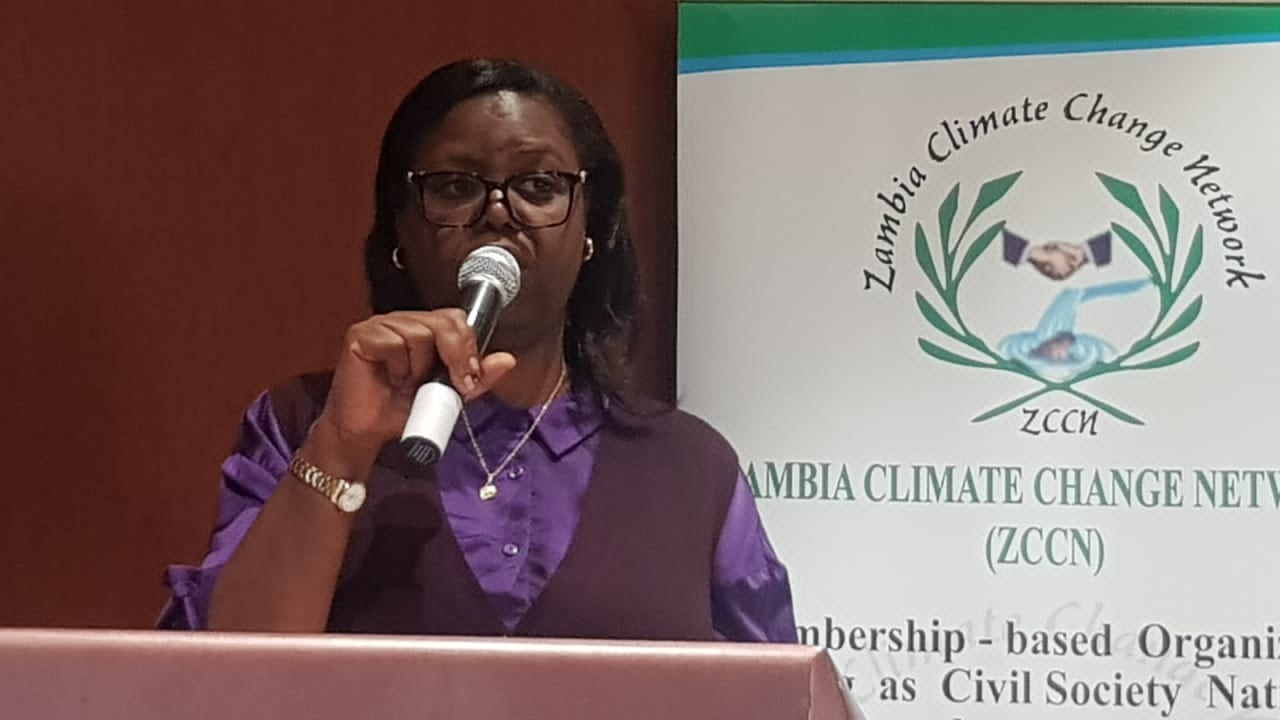
By Happy Mulolani
Undoubtedly, Zambia is one of the countries negatively impacted by the climate crisis, which culminated in a severe drought that hit various sectors of the economy.
One of the critical sectors worst hit is the agriculture sector as the country witnessed 84 out of 116 districts hit with severe drought.
It accounts for 20 percent of the national gross domestic product, and over 60 percent of smallholder farmers depend on the sector for their livelihoods.
With the severe climatic shocks experienced, climate campaigners are so far, exploring ways of responding to some of the challenges ahead of the 29th United Nations Climate Change Conference of Party (COP) to be held in Baku, Azerbaijan next week. The climate campaigners drawn from the Zambia Climate Change Network convened in Lusaka to contribute towards the country’s position paper.
Zambia Climate Change Network Board Chairperson Monica Chundama, reiterated the need for developed countries to operationalise the Loss and Damage fund to support key areas of interventions, given the dire impacts on smallholder farmers in the country.
Ms Chundama pointed out that civil society organisations have stepped up efforts to pass recommendations to curb the country’s current adverse factors affecting the agriculture sector.
“The reduced agriculture output has led to crop failures and loss of income which has affected loss of income,” Ms Chundama stated.
She explained that reduced rainfall has witnessed a decrease in agriculture production and also affected other sectors such as the energy sector.
Ms Chundama urged climate campaigners to support key areas of interventions such as research and development.
Sadly, Zambia has been mainly reliant on hydropower, which needs to be addressed. It is clear that what is needed is to develop a strong approach to come up with solar energy. This calls for promoting renewable energy solutions that are decentralised and accessible.
According to an expert from SNV, Kondwani Mumba, “There is need to reduce cost of accessing and also establish regulations that appliances are energy efficient.”
Mr Mumba suggests that the country needs to conduct energy audits.
“When building infrastructure, some measures need to be enforced to ensure buildings conform to energy efficient specifics,” he said.
For these energy technologies to work, there is need to create awareness and promote behaviour change among communities.
“Awareness needs to be raised on the need to adopt efficient cooking stoves, as well as scale up rural electrification programmes to ensure more households have access to power for various purposes,” Mr Mumba emphasized.
To work efficiently requires appropriate funding mechanisms to ensure the country embraces other energy sources and adopts other initiatives outside Zambia.
Some of the climate campaigners observed that one of the key submissions for COP29, should be to support research and development and concretise the financing mechanisms. This premise provides a basis for most African countries to invest in research. Sanitation is also another key area of intervention, given that access to sanitation is very low hence the need to prioritise a multisectoral approach.
Andrea Zulu, is one of the climate campaigners from FIAN Zambia. FIAN Zambia advocates for food and no hunger and malnutrition at the end of the day.
Mr Zulu reveals that this year, drought has left over one million hectares of crop land thereby pushing households into hunger. This has exacerbated the levels of hunger given that malnutrition rates are 35% in Zambia, making the country among the highest with stunting rates.
He suggested that some of the key issues which have adversely affected climate change is the impact of industrialisation. Industrialisation has led to a mono-culture thereby contributing to the ever-growing population leading to soil erosion, biodiversity, and heavy use of pesticides and herbicides.
Mr Zulu expressed concern at the low resilience against climate change due to the ecosystem imbalance.
He argued that the low uptake of agroecology has affected production and productivity.
Mr Zulu attributed the low uptake to limited knowledge on agroecology, more support has been directed more to conventional programmes which focus on chemical fertilisers and change of mind-set.
He reiterated that this notion needs to take a different approach to promote agroecology.
“Agroecology needs to take a holistic approach and offer amicable solutions to address challenges in the agriculture sector,” Mr Zulu said.
With the COP29 heating up, the Zambian Team of Negotiators needs to push agroecology as an urgent intervention. Once adopted and embraced, agroecology will improve biodiversity, reduce chemicals, save on costs, and allow farmers to cultivate at low costs, while also reminding developed countries of the loss and damage fund to help mitigate climate change.
